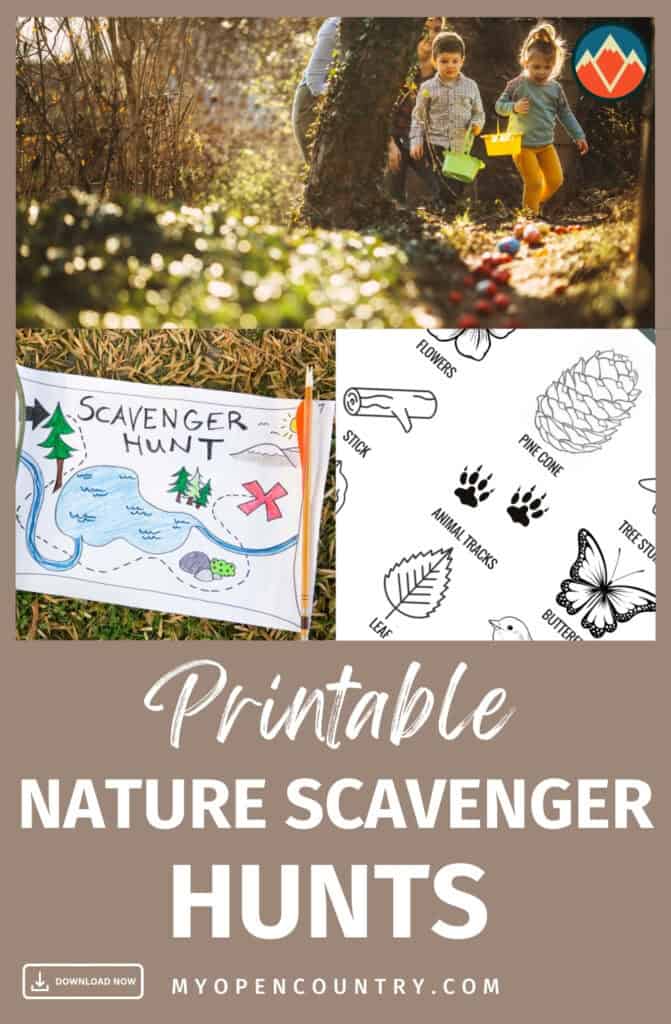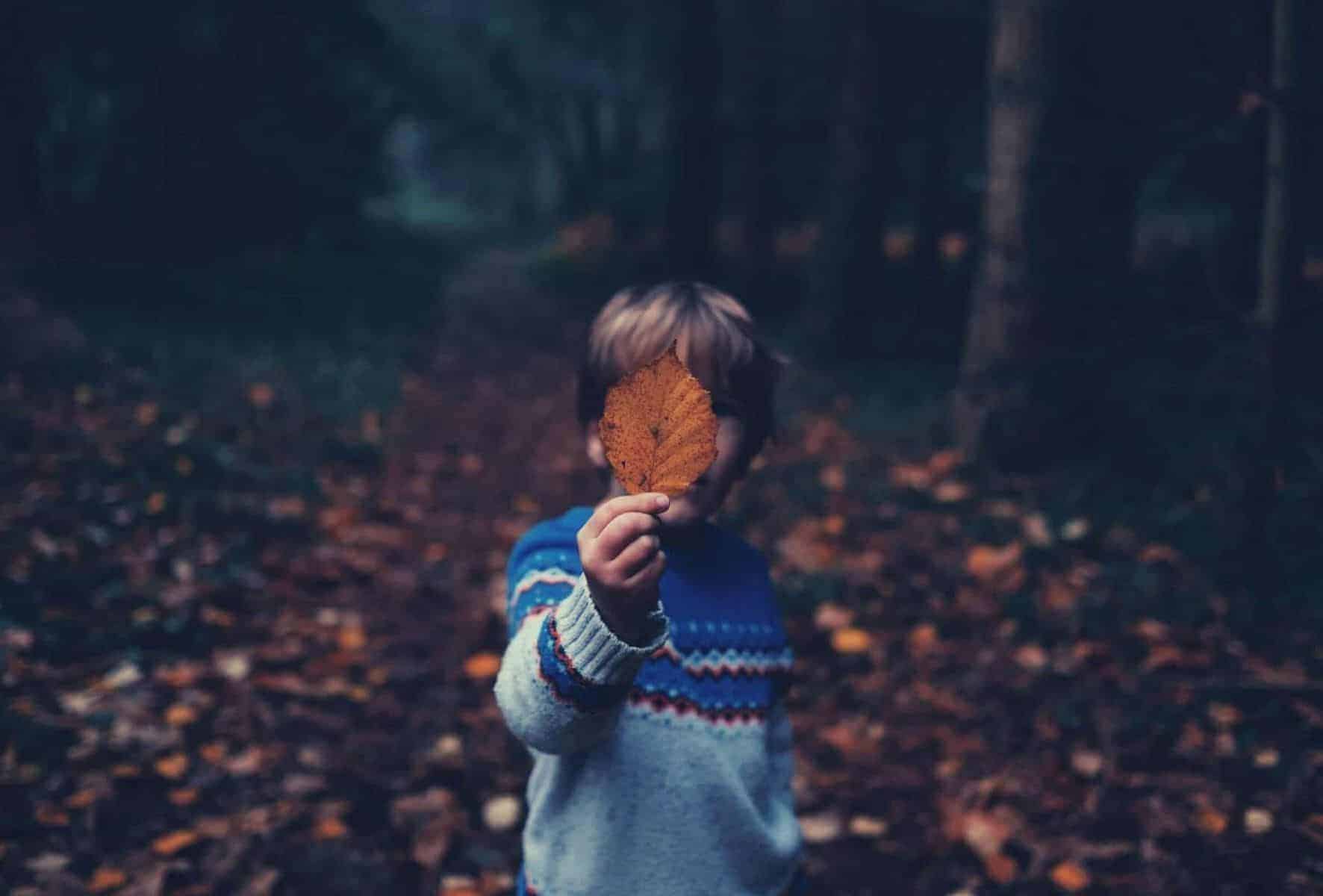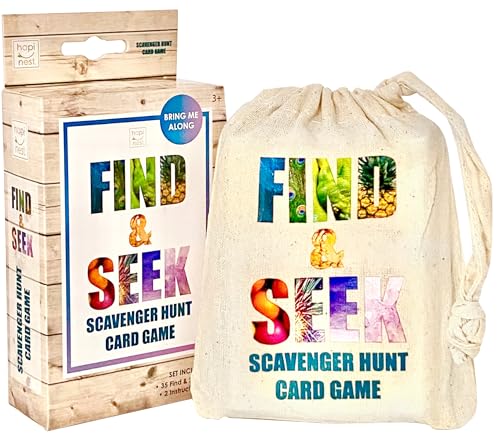If you’re looking for ideas to encourage family members or friends to join you on the trail then look no further. A scavenger hunt is a fun way to get creative, use problem-solving skills, learn about nature, and all while creating lasting memories while spending time outdoors.
To help you out, we’ve outlined each of these stages below. If you’re short on time, and patience or aren’t too keen on all this planning lark, you can skip ahead to the ready-made, printable checklist scavenger hunt ideas at the end of this article.
Do
Don’t
Save for later!!! ⤵️
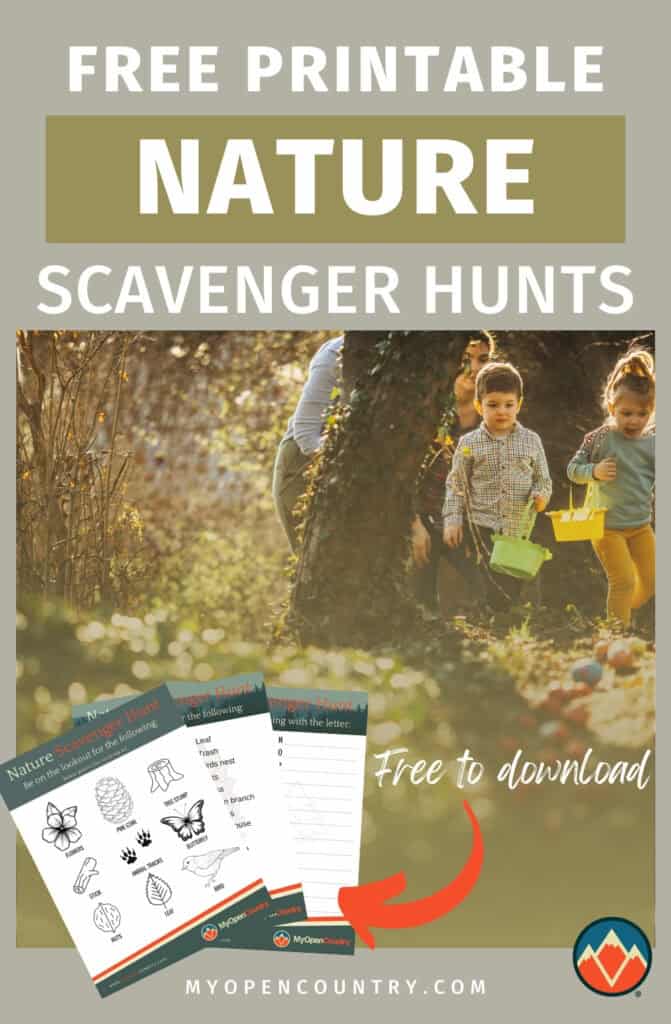
Table of Contents
How To Make Your Own Outdoor Scavenger Hunt?
In terms of fun, making your own nature treasure hunt is second only to planning a vacation or celebrating Christmas (without the stress, annoying relatives, and ubiquitous Bing Crosby music!). Organizing a scavenger hunt for kids or teens might require a bit of effort, but it allows you to customize it to the needs and interests of your child(ren). We’ve simplified the process by breaking it down into stages for you.
To help you out, we’ve outlined each of these stages below. If you’re short on time, and patience or aren’t too keen on all this planning lark, you can skip ahead to the ready-made, printable checklist scavenger hunt ideas at the end of this article.
Where Can You Scavenge?
Whether you’re exploring in person or checking out locations through a Google search, researching your destination beforehand is always a good idea for the reasons below.
- To make sure it’s safe for you and your kids
- To check that the items on your hunt list will be discoverable
- To acquaint yourself with the terrain in case anyone (including you!) should get lost
- To check the available facilities

What Themes Can You Have For An Outside Scavenger Hunt?
Various themes can add excitement to your scavenger hunt and help to sustain your kids’ interest, particularly by the time you’re on your sixth or seventh hunt. A list of potential themes is included in the list below.
- Seasonal
- Opposites
- Identification
- Tasks
- Alphabet
- Colors
- Sensory
1. Seasonal
This depends on where you are in the world, but below are some examples of season-specific items you can use to tailor your hunt to the specific season.
- Winter: mistletoe, holly leaf, holly berry, a green leaf, an icicle, a frozen puddle or pond, a robin, tracks in snow, snow-laden branches, evergreen plants/trees, woodpeckers, cardinals, blue jay
- Spring: unopened buds, forget-me-nots, snowdrops, melting snow/ice, popped buds, pine warbler, common yellowthroat, pollinating bees, frogs, salamanders, tadpoles
- Summer: edible berries, sunburnt grass, marmot, wild lavender, lizards, flowering lime tree, chicken of the woods, other mushrooms, leaf eaten by caterpillar, bluebells, poppies, cowslips
- Fall/Autumn: chestnuts, sycamore leaves/seeds, red leaves, a bare tree, ripe blackberries, empty seed pod, multicolored leaves, crunchy leaves
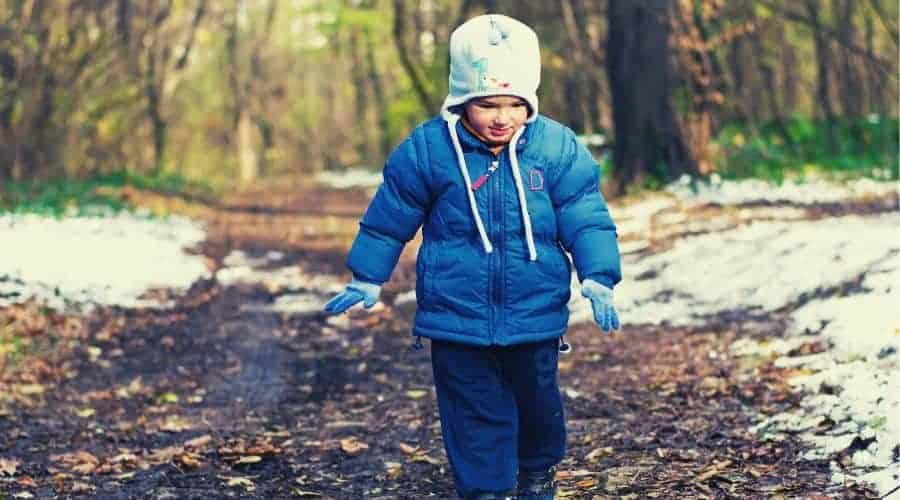
2. Opposites
This simple hunt focuses on finding pairs of items that are opposite to each other. Examples of items you may include are big/small, rough/smooth, tiny/huge, long/short, fast/slow, wet/dry, or old/new. It’s an ideal activity for boosting your toddler’s vocabulary while getting them out in the great outdoors.
For littlies in particular, printing pictures or drawings of items and then laminating your list is a good idea. Not only does it help them find what they’re looking for, but also makes the list water/chocolate/ice-cream-proof (!) and reusable. Lamination machines are great for many things involving little ones.
3. Identification
This hunt involves identifying specific ‘items’ within a chosen topic, for example, recognizing particular types of trees or birds. Since this task is more challenging than a simple list-based hunt, it’s an excellent addition to nature scavenger hunts for older kids. A printout of the ‘hunted’ species or a pocketbook guide is therefore highly recommended!
4. Tasks
A variety of tasks can be used as the main theme for a scavenger hunt or as an additional activity in a standard hunt. Possibilities include building a shelter, finding north without a compass, taking rubbings of leaves, or drawing pictures related to the hunt. Tasks are ideal if you need a break or simply want to keep everyone in one place.
5. Alphabet
Another option is to challenge kids to find various items whose names start with each letter of the alphabet, progressing sequentially from A to Z.
6. Colors
Simply provide the kids with a list of colors and have them locate as many items as possible that match each color.
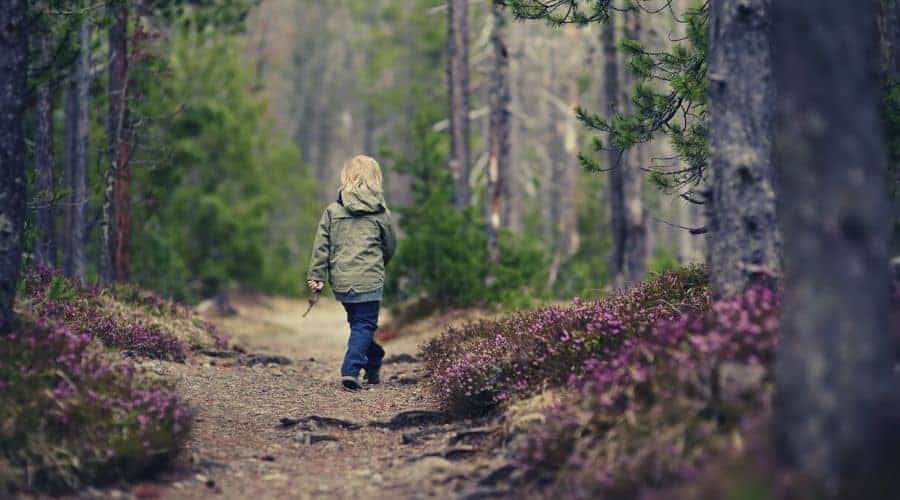
7. Sensory
This type of hunt is experiential, focusing on four of the five senses: see, feel, hear, and smell. For obvious reasons, the ‘taste’ list is best saved for well-seasoned hunt veterans! Some sensory ideas are discussed in the following section.
What Are Nature Walk Scavenger Hunt Ideas?
After your recon and theme selection, it’s time to choose items for your scavenger hunt list. Before heading to your hunt location, research to find out what you’re likely to find (and not find) there. In the categories below, we’ve compiled a list of items to consider for your scavenger hunt list.
- Objects
- Activities
- Sights
- Touch
- Sounds
- Smells
- Discern
1. Objects
Choosing objects for your hunt is the most basic and common type. The duration and difficulty of your hunt will depend on the number of objects you choose, their accessibility, and their prevalence in the hunt location.
- Moss
- Pine tree
- Seeds or seed pod
- Exposed tree roots
- Dead tree
- Eroded soil
- Clay
- Smooth/shiny rock
- Rabbit hole
- Mud
- Dark or light green leaf
- Small pebble
- Insects on a tree
- Deer tracks
- Animal hole in the ground
- Deer
- Frog
- Unusual shaped leaf
- Rocks with many colors
- Different shades of green or brown leaves
- Dew on a flower or leaf
- Fungus on a tree
- Lichen
- Vine
- Twig
- Knot in a tree
- Poison ivy (be careful!)
- Snail
- Beetle
- Ladybug
- Spiderweb
- Tree with blossoms
- Hole in a tree
- Animal tracks
- Worm
- Caterpillar
- Squirrel
- Bird
- Ant
- Grain of sand
- Fern
- Berries
- Evidence of the presence of animals (tracks, scat, burrowing)
- Evidence of the presence of people (footprints, trash, tire marks)
- Y-shaped twig
- Trash
- Something spiky
- Pine needles
- Pinecone
- Acorn or other nuts
- Wild Flowers
- Heather
- Nettles
- Docking leaves
- Feather
- Lizard
- Stream or creek
- Blade of grass
- Clover leaf
- Pond or pool in a creek
- Butterfly or moth
- Bird’s nest
- Leaf with insect holes
- Leaf with insect eggs
2. Activities
Some suitable scavenger hunt activity ideas for young kids are included in the following list.
- Draw a picture of a tree, flower, plant, insect, animal
- Take a leaf rubbing
- Quiz: answer questions about items on your list playing ‘What am I?’ (i.e. “I’m small and shiny. I’m very slow and I live in a shell. My name rhymes with ‘tail’. What am I?”)
- Write a story about your scavenge/hike
- Hang from a branch
- Play ‘Guess the Object’: place 10 or so items in a (non-transparent) bag and have the children identify them by touch alone (we’d recommend excusing the lizards, butterflies, and beetles from participation in this one!)
- Skip a rock on a pond/creek/lake
- Hike to the top of a hill
- Build a bird’s nest
For ideas of activities for older children check out the following list.
- Start a fire without matches (ideal if you need a break and want to keep them busy for a while!)
- Cook lunch (see above!) without utensils
- Catch a fish/tadpole/fly/butterfly/bee
- Build a shelter
- Find the coin: test map-and-compass skills by hiding a coin or prize somewhere and having teams or individuals navigate to it
- Find edible plants, berries, and nuts
3. Sights
For a sensory-themed hunt, the following list offers a variety of unique sights to consider adding to your outside scavenger hunt list.
- Animals feeding
- Lightning Bugs
- Reflection in the water
- Trail markers
- Other hikers
- Animal homes or nests
- Something unusual
- Something scary
- Sunlight coming through trees
- Sunrise or sunset
- Squirrel climbing a tree
- Ant carrying something
- Wind blowing leaves
- Fish jumping
- Shooting star
- Clouds passing
- Something funny
- Falling leaf/leaves
- Spider in its web
- Insect trapped in spiderweb
- Stars in the sky
4. Touch
To enhance the sensory experience of your hunt, consider adding a variety of tactile items to touch. Here are some ideas in the list below to get you started.
- Prickly plant
- Moss
- Wet mud
- Rough leaf
- Smooth leaf
- Slimy stone
- Tree bark
- Grass between your toes
- Rotten wood
- Dandelion
- Wind blowing on face
- Different rock textures
5. Sounds
Continuing with the sensory theme, the following list offers a variety of sounds you can choose to add to your scavenger hunt list.
- Leaves crunching under your feet
- Cricket’s croaking
- Water running in a stream/river
- A stone plopping into water
- A creaking branch/tree
- Wind in the trees
- A bee buzzing
- Birds singing/chirping
- Noises in the woods
6. Smells
The final sensory experience for your hunt is a little more subtle, and involves smells. The following list contains a variety of scents you can seek out during your scavenger hunt.
- Fresh air
- Cedar tree
- Pine tree
- Spruce or fir tree
- Different leaves
- Wild garlic
- Flowers
- Mud
- Grass
7. Discern
A bit more advanced, the following list contains ideas to test the discernment of your scavenger hunters.
- Find different types of rock
- Find different animal tracks
- Find different types of plant, tree, flower, leaf
- Identify different types of bird
Which Nature Scavenger Hunt Printable To Do First?
In case you don’t have the time for all the planning involved, we’ve included a selection of ready-to-go, pre-made scavenger hunt printables for various ages so you can simply print and head outdoors!
- Find Items For Younger Children Free Printable
- Find Items For Older Children Free Printable
- Alphabet For Older Children Free Printable
- Senses For Not so Little-uns Free Printable
Feel free to post any of our outdoor scavenger hunts on your blog, we only ask that you please link back to this post (not the pdf) when you do!
1. Find Items For Younger Children Free Printable
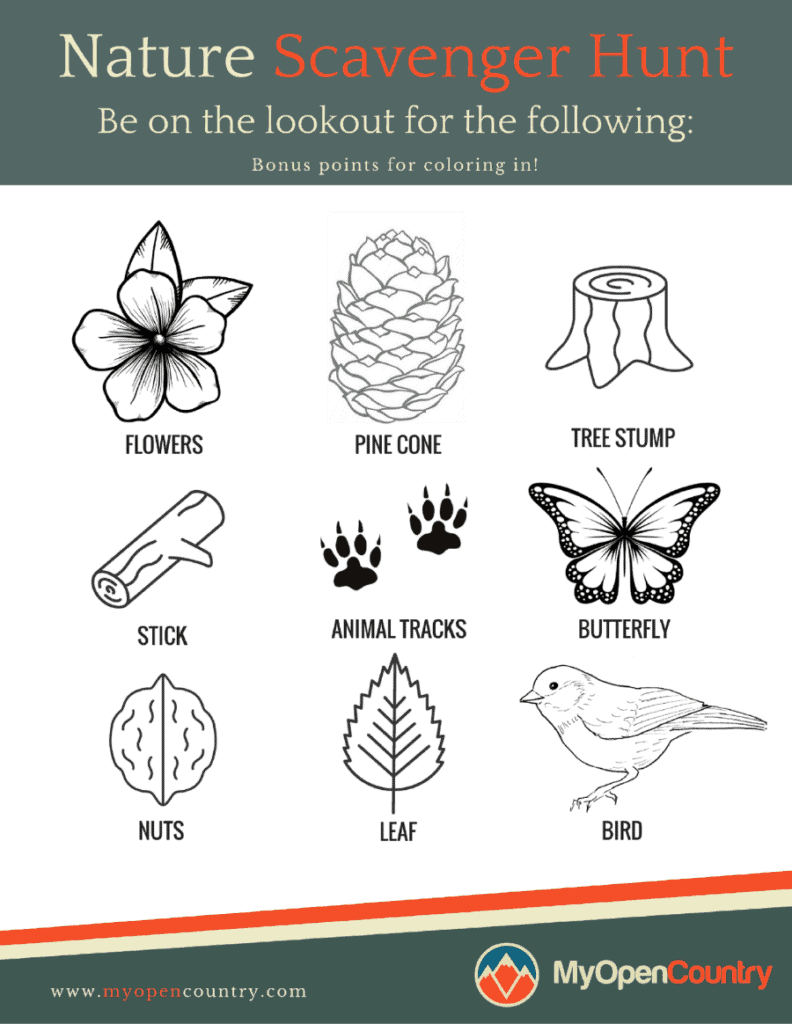
2. Find Items For Older Children Free Printable
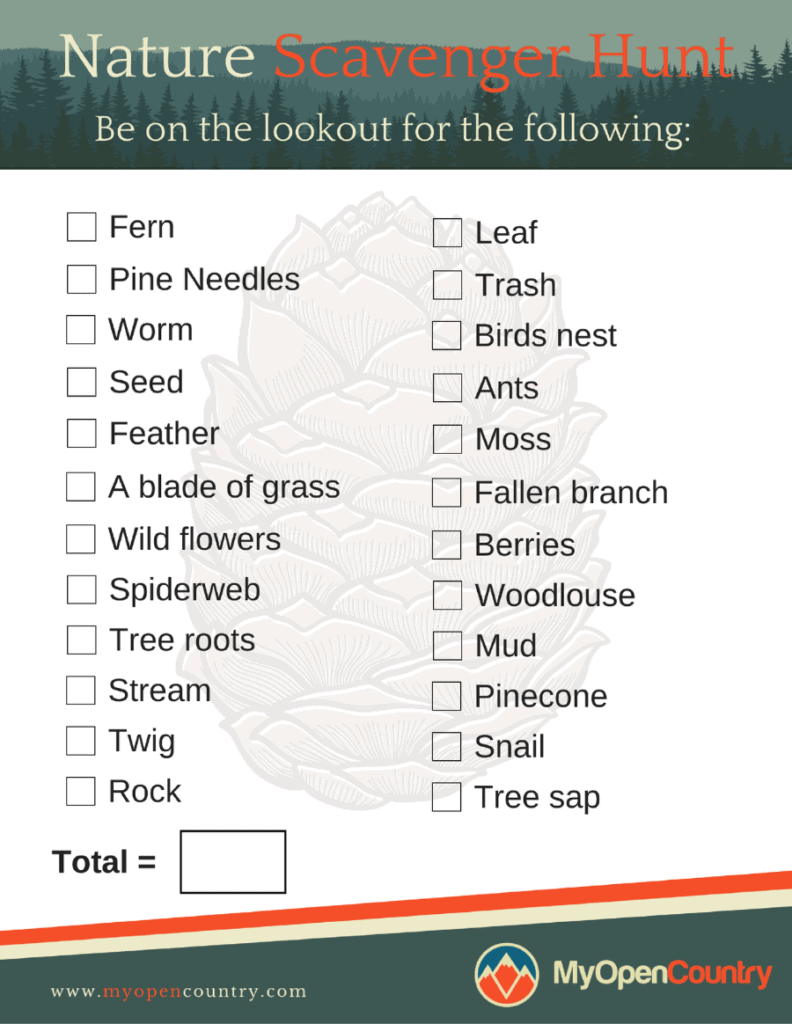
3. Alphabet For Older Children Free Printable
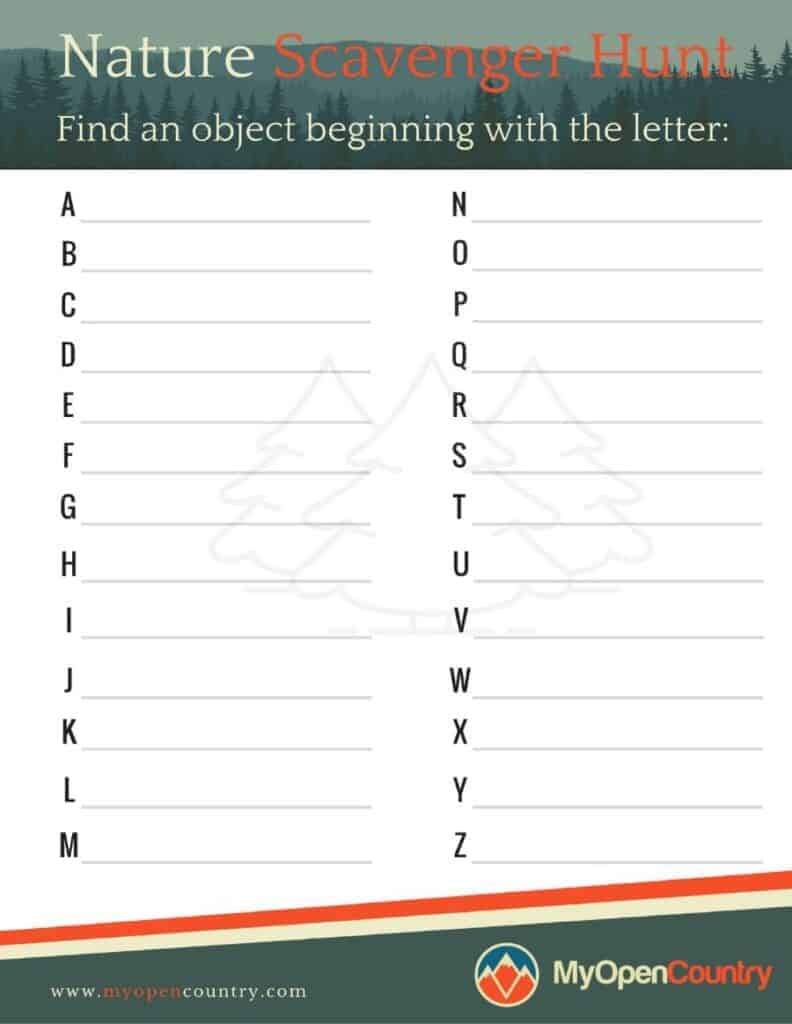
4. Senses For Not so Little-uns Free Printable
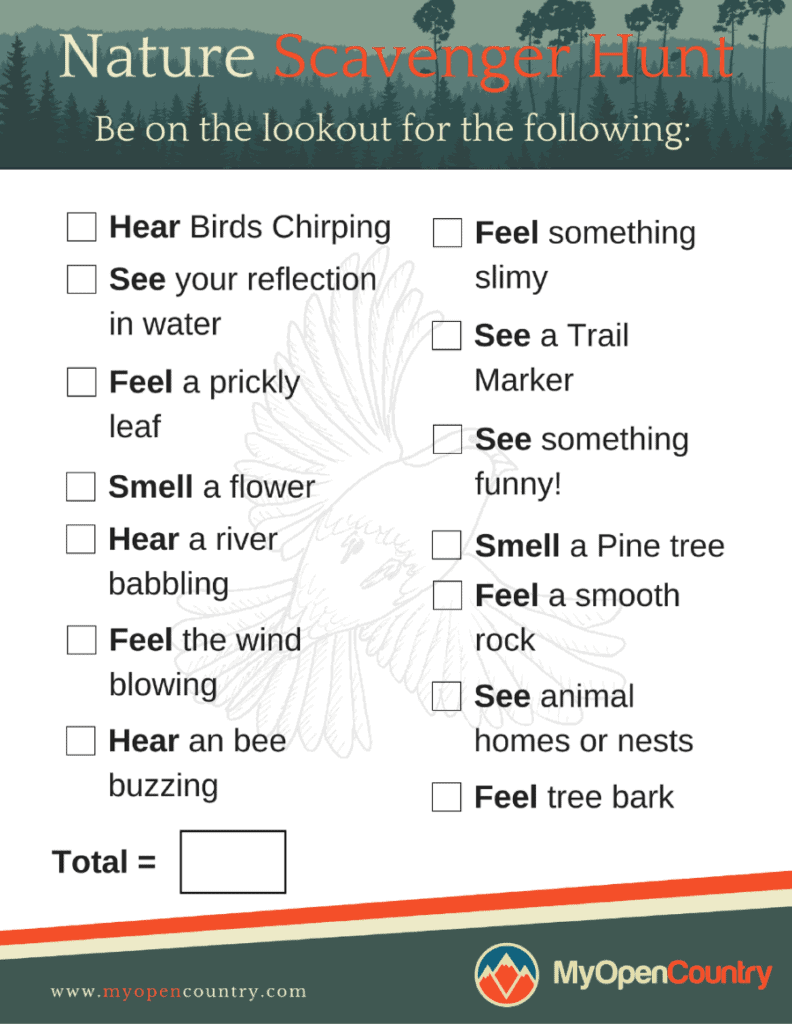
HAPPY HUNTING!!!
Want To Buy A Ready-Made Scavenger Hunt?
Save for later!!! ⤵️
